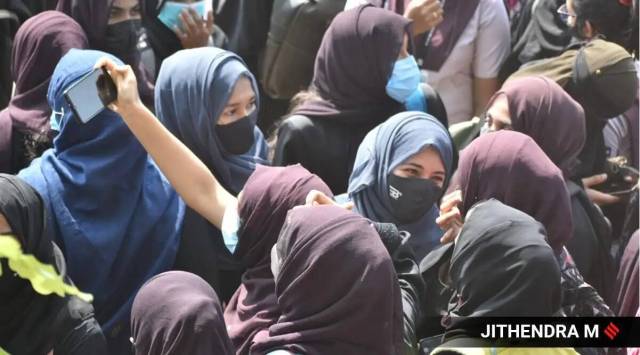Muslim law board on UCC: Majoritarian morality can’t supersede minority rights
“Majoritarian morality must not supersede personal law, religious freedom and minority rights in the name of a code which remains an enigma,” the AIMPLB wrote to the Law Commission in a 100-page representation.
 This was in response to the Law Commission seeking views from the public on June 14 on the UCC, saying it was examining the matter.
This was in response to the Law Commission seeking views from the public on June 14 on the UCC, saying it was examining the matter. The All India Muslim Personal Law Board (AIMPLB) on Wednesday wrote to the Law Commission of India, reiterating its opposition to the UCC while underlining that “majoritarian morality” must not override religious freedom and rights of minority communities.
“Majoritarian morality must not supersede personal law, religious freedom and minority rights in the name of a code which remains an enigma,” the AIMPLB wrote to the Law Commission in a 100-page representation.
This was in response to the Law Commission seeking views from the public on June 14 on the UCC, saying it was examining the matter.
The representation was sent to the Law Commission after the AIMPLB discussed the issue at a meeting. AIMPLB spokesperson S Q R Ilyas told The Indian Express, “In the representation, we have answered how the justifications being given by some people and the political parties in favour of the UCC are useless.”
In its response, the AIMPLB argued that the Constitution itself is not uniform since it secures special rights for certain groups.
“The most crucial document of our nation, the Constitution of India, is itself not uniform in nature, prudently and with the intention to keep the country united. Different treatment, accommodation, adjustment is the nature of our Constitution. Different territories of the nation have been given different treatments. Different communities have been made entitled to different rights. Different religions have been given different accommodations,” it said.
The response also argued that Muslim personal law is “directly derived from the Holy Quran and Sunnah (Islamic laws) and this aspect is linked with their identity”.
“Muslims in India will not be agreeable to lose this identity of which there is space within the Constitutional framework of our country. National integrity, safety and security and fraternity is best preserved and maintained if we maintain the diversity of our country by permitting minorities and tribal communities to be governed by their own personal laws,” it said.







